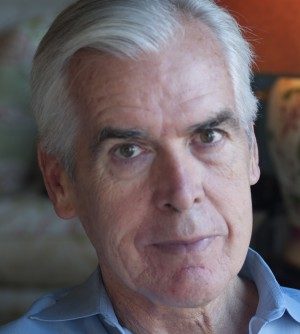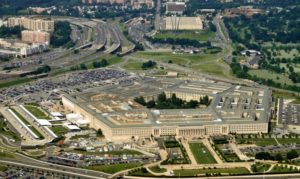
Human agency is at the center of the solution to fix the government and the civil service.
The five-week shutdown of the federal government, ending in late January 2019, illustrated a huge gap in the de-regulation versus pro-regulation political debate. The challenge is not whether to scrap government oversight—furloughed officials from the U.S. Federal Aviation Administration could have been studying the failures of the Boeing 737 Max which led to two tragic crashes. The challenge is to come up with a new governing framework that is practical and responsive.
Paul Light, in his excellent essay, focuses on the need to remake public service, which the first Volcker Commission report in 1989 concluded was suffering from a “quiet crisis.” Reports since then have shown that morale has continued to deteriorate, along with the ability to attract energetic young graduates to public service. Calls for reform by Paul Volcker and others have gone unheeded.
The “quiet crisis” of public service mirrors, of course, a loud crisis of public credibility and effectiveness. Many Americans despise Washington. Light’s own surveys reveal a dramatic rise in public demand for “very major reform” of government—from 37% in 1997 to over 60% in 2018. Public dissatisfaction with government does not appear to be ideological. In 2008, Barack Obama was elected on the promise of “change we can believe in.” In 2016, eight million Obama supporters turned around and voted for Donald Trump, who promised to “drain the swamp.”
Here we are: Americans agree that government is broken, just as Paul Volcker and others see that the civil service system is broken. I think the two are inextricably linked. It is not possible to fix government without remaking public service, and vice-versa. What is missing in both is a framework that honors human responsibility.
Making practical choices in government, as in any life activity, requires that people be free to roll up their sleeves and make sense of the situation before them. Similarly, attracting good people to government is impossible unless they can make a difference. No one who is any good wants to be a paper-pusher. The decline of human agency is the common thread of broken government and broken civil service.
Not much in life or in government will work sensibly when no human is free to make it work.
Today, infrastructure permitting takes upwards of a decade because no official has authority to decide how much environmental review is enough, or to resolve disagreements among competing agencies. The bureaucratic process spins on, year after year, until a decision randomly drops out from the exhausted participants.
The gray, listless, gloomy culture of many public offices—repelling potential public service recruits—reflects the reality that taking initiative is usually unlawful in a framework designed for rote compliance. Getting the job done is irrelevant. Indeed, even rote compliance is irrelevant; no one is accountable for job performance. Who wants to work in such a place?
No one actually advocates for a suffocating bureaucracy. I have yet to find the enthusiast for thousand-page rulebooks. The mortar that keeps this system in place is distrust—specifically, distrust of human judgment.
Government did not used to work this way. There were few if any thousand-page rulebooks in the 1960s. The law authorizing the Interstate Highway System in 1956 was 29 pages long, in contrast to the 500 pages of the most recent transportation bill.
The design of modern government can be traced to explicit changes in governing philosophy after the 1960s. That tumultuous decade led to important changes in public goals—including civil rights, environmental protection, and product safety. But reformers also changed how public choices were made—instead of providing simple frameworks of goals, guiding principles, and lines of accountability (as the Constitution is written), new laws purged human judgment as much as possible. Law became an instruction manual, not only telling people what to do, but telling them exactly how to do it.
Forest rangers used to do their jobs quite well, guided by a thin pamphlet of rules. Now they have dense rulebooks.
Governing by detailed dictates has all kinds of unintended costs, as I have argued in books and essays. Detailed dictates do not honor tradeoffs of time and resources. They divert people to mindless compliance, instead of getting the job done. They cause “cognitive overload,” contributing to a plague of burnout in doctors and teachers.
The flaw is not a matter of degree, but a conceptual error in governing philosophy: Trying to specify every aspect of regulatory implementation is basically a form of central planning. In the quest to avoid failure of human judgment, we built a giant bureaucratic megalith that guarantees public failure and alienation.
But that is not the worst of it. Even millions of words of law cannot obviate the need for human judgment and decision-making. In any public or private organization, for example, part of the job of a manager is to decide who is doing a good job, and who is not. How can we guarantee there is no unfairness? The theory here was to replace the manager’s judgment with objective legal proceedings. The hallowed constitutional protection of “due process”—putting officials to legal proof before throwing you in jail or seizing your property—is now applied to daily management choices.
Due process sounds like the very definition of fairness. But the effect was to capsize the hierarchy of authority and accountability. How do you prove who is working hard and who is not? Or who has a cooperative attitude? Most judgments about people hinge on perception, not objective proof.
Putting public managers to legal proof has had the unintended effect of virtually eliminating accountability. The proof is in the pudding: Over 99% of federal employees get a “fully successful” rating. Are they all that good? Of course not. But no manager wants to endure the legal gauntlet of proving that an individual employee exhibits bad judgment or possesses a corrosive attitude. The hearings can go on for years.
In Tailspin, Steven Brill describes the hearing of a Brooklyn teacher pulled from her classroom for incompetence. The hearing produced a 5,000-page transcript, stretched over 45 days, and “revealed that she had failed to correct student work, prepare lesson plans, or fill out report cards.” Her lawyer “contested whether there was any proof that the teacher had ever possessed the instruction manual that told her to do all of these basic tasks.” This is why only around two of 277,000 teachers in California are dismissed each year for poor performance.
The downside of no accountability is not a plague of lousy public employees. Most people want to do a good job. The downside is a listless public culture. The energy in a healthy organization requires trust that everyone else is doing their part. What is important is not firing people, but the belief that coworkers have an obligation to pull their weight. The realistic prospect of accountability creates a culture of trust and energy vital to high-performing organizations. Like letting air out of a tire, the absence of accountability results in a sluggish culture. This is organizational psychology 101. As one study put it, one “bad apple can spoil the barrel.”
Rebuilding a culture of public excellence and pride is simple, but it is also radical. It requires abandoning two tenets of modern government.
First, regulation must be re-codified to be goals-oriented, leaving room for citizens and officials alike to make sense of choices and tradeoffs at the point of implementation. Life is too complex for mindless compliance in most settings. Public officials must have authority that matches their responsibility. Giving officials responsibility does not mean they should have discretion to do whatever they want. They must adhere to stated legal goals and principles. The inevitability of disagreement means that other officials must have oversight authority. The advantage to citizens is that government can adapt to their particular situations. The advantage to officials is that they can make a difference. Reviving responsibility will revive dignity and purpose to public service.
Second, public employees must be accountable to their supervisors up the hierarchy of responsibility. Because accountability is largely a matter of perception and judgment, the most important criterion of accountability is whether public managers and coworkers want to work with a particular person. The basic principle for “contentment within the organization,” Nobel laureate Friedrich Hayek observed, is “rewarding a man according to what others think.” Safeguards against unfair or arbitrary accountability decisions can be accomplished through second opinions; some companies, for example, have coworkers review termination decisions. What does not work, we now know, are formal legal proceedings, which become forums for excuses, finger-pointing, and embitterment.
Paul Light notes that we have “a once-in-a-generation chance to remake the federal service.” I would go further and argue that we have a once-in-a-generation chance to remake the framework of modern government. Most Americans want major overhaul, as Light has found. Most experts know that civil service system is broken and, indeed, dispiriting. The solution to both problems is the same. Government must restore the primacy of human responsibility in public choices and give back to officials the chance to make a difference, including in the management of public organizations. It must give back to citizens a government that is responsive and allows them to achieve their goals without mindless roadblocks.
I am arguing for a historic reorganization, comparable in scope to the rights revolution of the 1960s or the progressive movement at the turn of the last century. I do not think America has a choice. Nothing will work sensibly until people with responsibility can make the tradeoffs and other judgments needed to make things work.
This essay is part of a five-part series, entitled What the Shutdown Revealed About the Value of Public Service.




